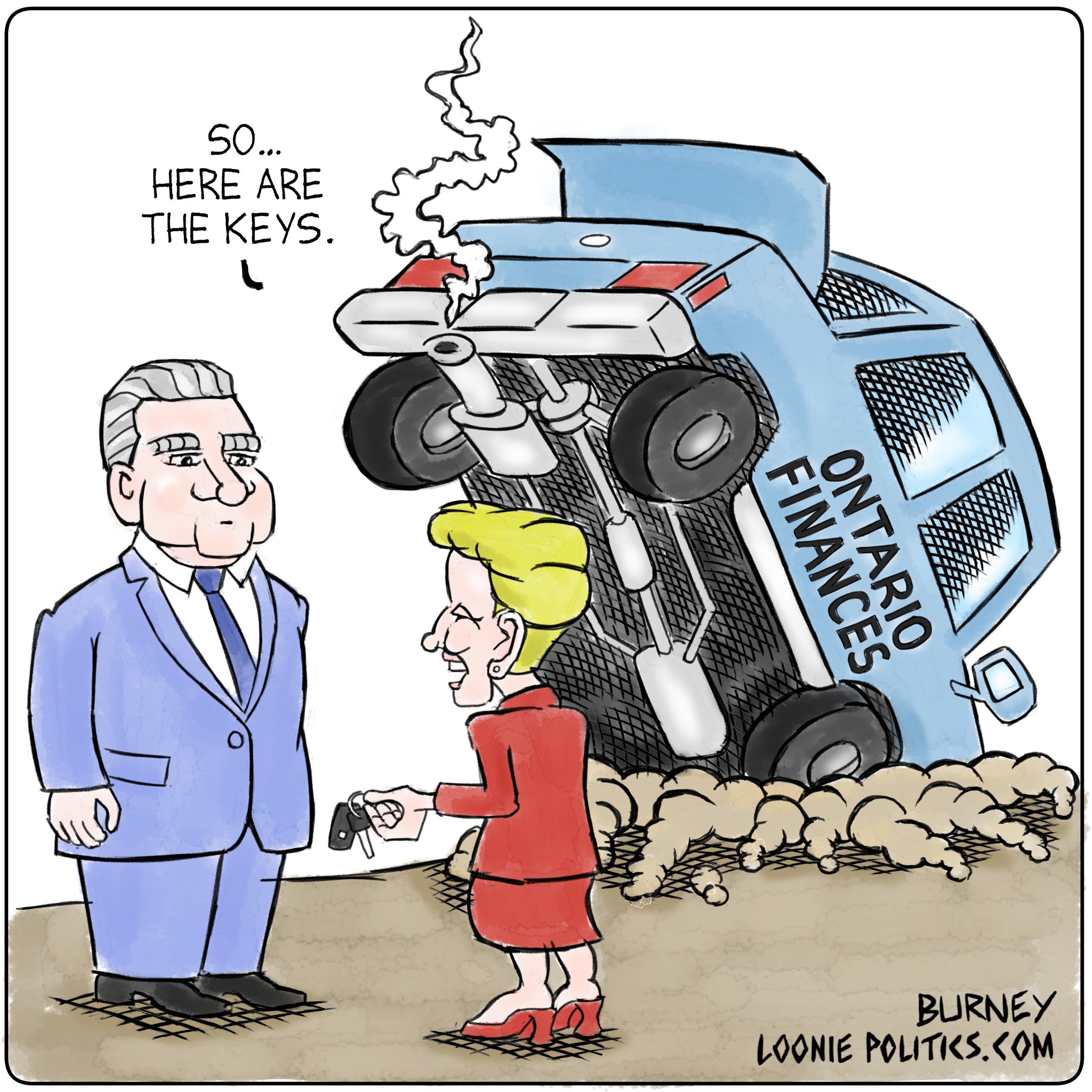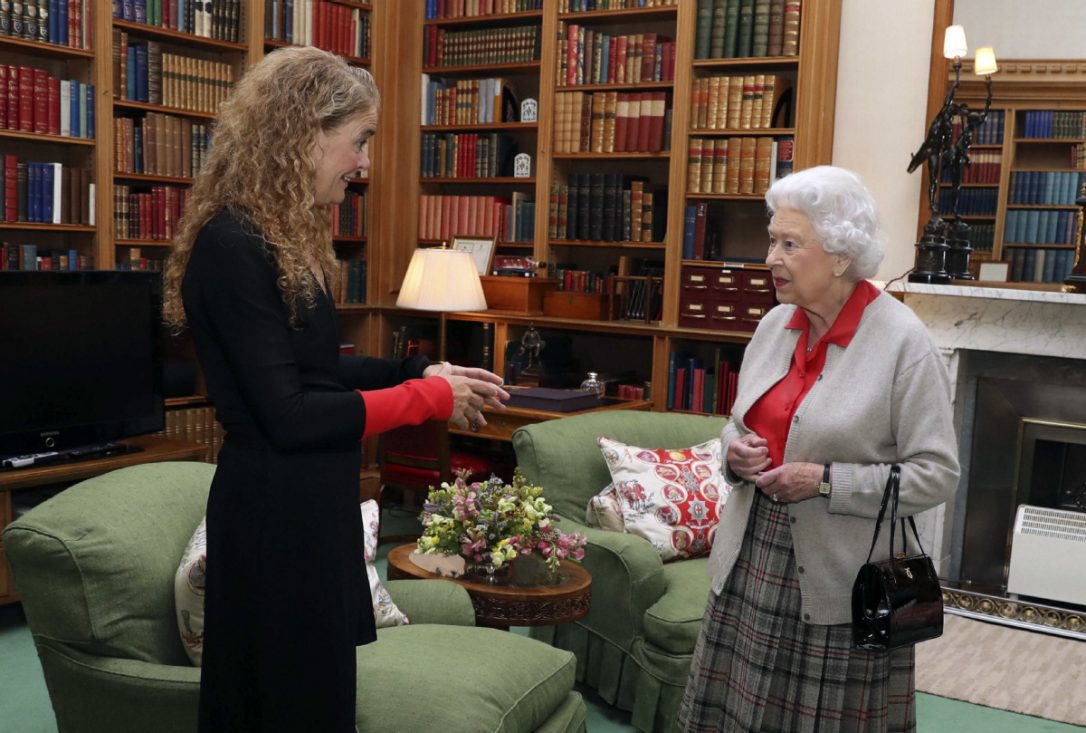"When we got into office," JFK once said, "the thing that surprised me most was to find that things were just as bad as we'd been saying they were." Doug Ford and company seem to be having the same problem. So at the risk of seeming naïve, I say it's never too late to do the right thing, namely speak the truth and fix the problem.
I've never thought Kennedy's quip honourable or even witty. If he didn't think those things were true he shouldn't have said them. And as a Congressperson and Senator for 13 years before running for president, he should have had some idea what was going on.
Ditto the Ontario Tories, now standing about slack-jawed in astonishment that the Liberals they called lying, book-cooking, incompetent big spenders were lying, book-cooking, incompetent big spenders. And looking especially stupid because they based their plans for balancing the books without pain on the same Liberal numbers they rubbished on the campaign trail.
There is a lot of sound and fury in public affairs that tends to obscure simple truths. And modern government budgets are singularly impenetrable by reason of their inherent complexity and also Sir Humphrey Appleby's aphorism that if nobody knows what you're doing, then nobody knows what you're doing wrong. But in this case it simply wasn't true.
As new Tory Finance Minister Vic Fedeli just pointed out, the Ontario Auditor General had used "words like 'conceal', 'bogus', 'deceptive' and 'unreliable'" for the Liberal administration's power system financial plans, part of the reason the $6.7 billion deficit the Liberals confessed to in 2018 was more like $15 billion. But when Fedeli called it "a crippling hidden deficit that is only now being brought to light" he was digging the hole deeper because everybody knew about it including him.
For years I've been making presentations noting the scary discrepancy between Ontario's official "deficit" and the publicly-stated growth in its debt. And while I may have spent years saying things people did not dispute only because they never noticed me saying them (like "Toronto should be a separate province"), the Tories were all over this one. When the Auditor General uttered her stinging language before the 2018 election, and sent a formal protest letter in October 2016 about the Ontario government's pension accounting, the Tories seized on her words to berate the Wynne administration, including then-finance critic V. Fedeli.
Two of the tiny band of Liberals remaining at Queen's Park, their interim leader and finance critic, had the gall to razz Fedeli for "pretending to be shocked by something he has known for a long time", namely that they were fiscal liars. But it takes almost as much gall, and arguably less wit, to put forward platforms, from Patrick Brown's "People's Guarantee" to the loose collection of sticks on which Doug Ford stood for office, using Liberal numbers they knew were fake as a foundation to… wait for it… promise billions in new spending, tax cuts and a balanced budget.
Perhaps the Tories calculated that telling voters the truth would cause them to flee. One National Post article noted their failure to seek "a Mike Harris-style slash-and-burn mandate" and you can see how, as phrased, it might lack electoral appeal. But as with Ralph Klein, restraint under Harris was more deplored than experienced. In his first budget spending was $56.6 billion; in his last, seven years later, $73.8 billion. Some slash. Some burn.
Indeed, that Post article observed, cutting $15 billion from the budget wouldn't even take Ontario back down to what it was spending in 2016. Yet to get there from here is almost impossible given the structural dynamics of government budgets and the citizens' resistance to any reductions in public spending, especially ones they were not warned of.
Here is where the Tories start to look like fools as well as knaves. They must now either spend Ontario into bankruptcy or make dramatic cuts, both of which they promised to avoid. Because they were afraid to tell the whole truth about the mess, or even think very hard about it, they lack a mandate to deal firmly with it.
It's too late to go back and run a different campaign. But they can still stand up and say folks, government in Ontario is too big so it needs to get smaller. It's doing too many things and doing most of them badly. You think cuts will hurt and some will in the short run. But we'll all be a lot better off down the road, and the sooner we start the sooner we'll get there.
Such a statement would cause them political trouble and it would serve them right. But it beats standing there like dopes going I can't believe things are as bad as we said.
Photo Credit: Jeff Burney, Loonie Politics








